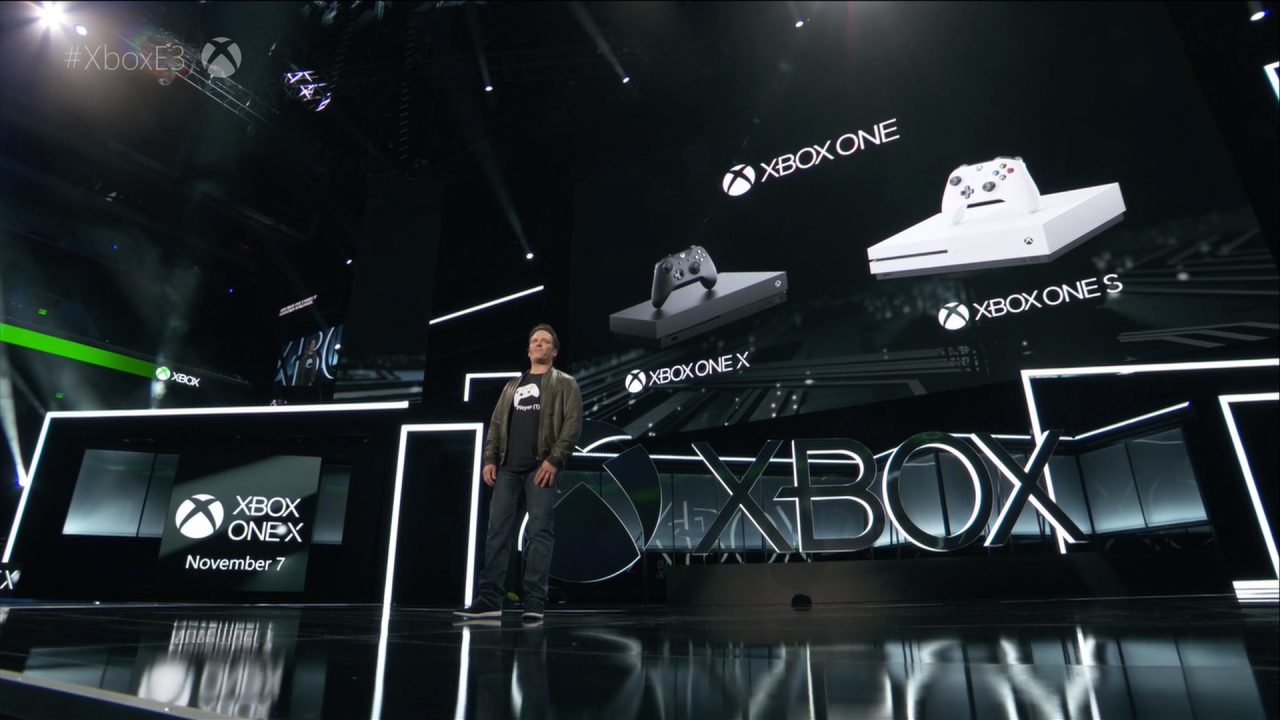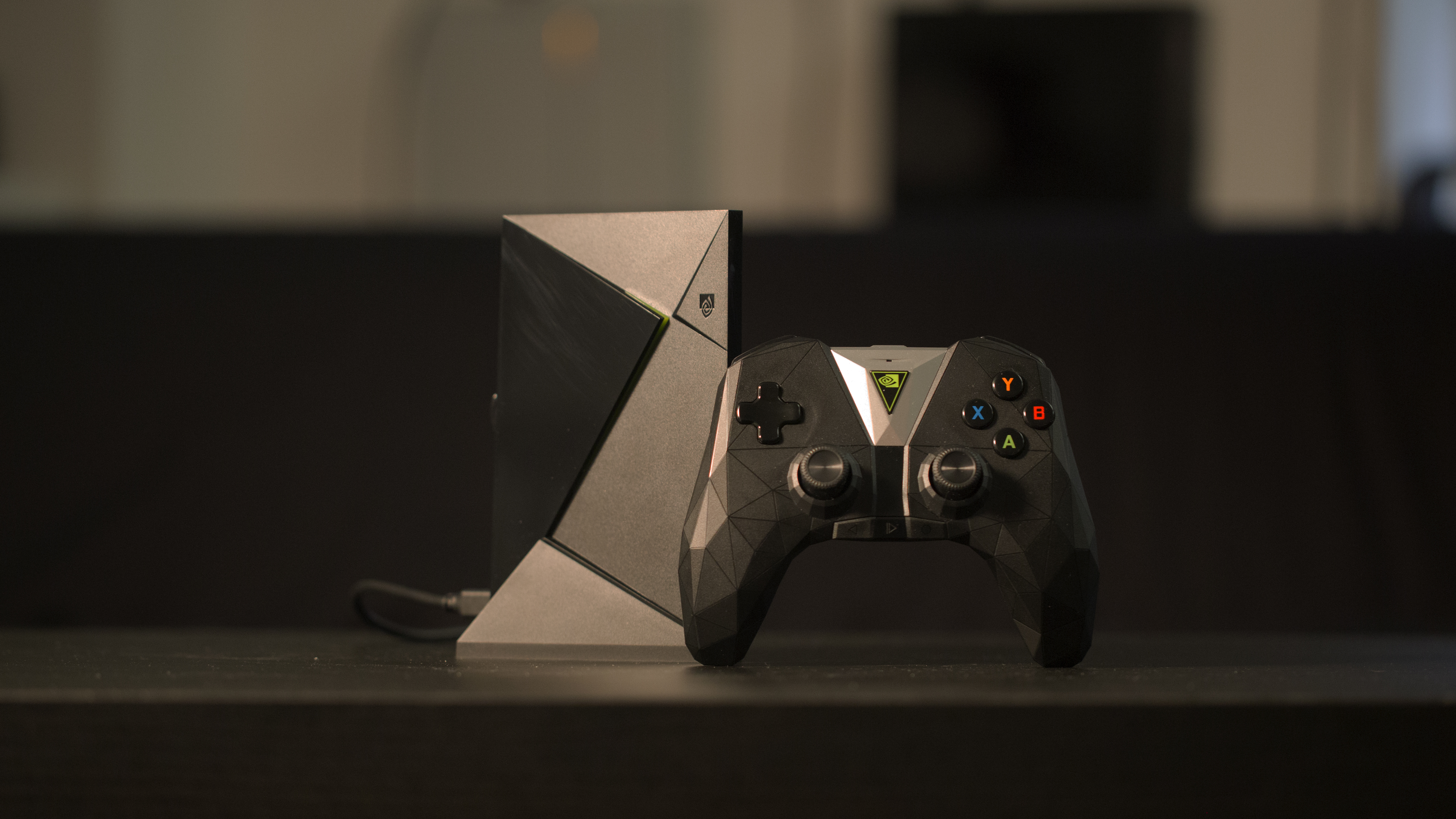The Xbox One X just hasn't got the X-clusive factor for this PC gamer
SOS Xbox One X

At Microsoft’s E3 2017 presentation, it had the chance to entice non-Xbox owners into jumping onto its platform when it unveiled the console previously known as Project Scorpio, the Xbox One X.
From my point of view, it failed.
I have never owned an Xbox console, but while I mainly play games on my monster rig I’m not some kind of PC master race, give-me-keyboard-and-mouse-or-give-me-death, snob.
I have owned – and loved – consoles by Sega, Nintendo and Sony. I recently finished Horizon: Zero Dawn on my PS4 Pro and will happily admit that not only is it one of the most fun games I’ve played, it’s also one of the best looking games I’ve ever laid eyes on – despite the PS4 Pro being relatively underpowered compared to my PC.
So why have I never bought an Xbox? There’s a number of reasons. The original Xbox came out too late – by then I had already spent all of my student loan on a PlayStation 2 and a growing number of games.
The Xbox was more powerful than the PS2, but it didn’t have the amazing library of Sony’s console. Its ‘killer app’ – the game that was supposed to sell you on the console – was Halo, a game I had already played on PC. This was to be a bit of a theme.
- Turn your head to the best laptops you can buy in 2017

Red ring
I held off buying an Xbox 360 due to the growing number of reports of consoles failing due to the ‘Red Ring of Death’ error. While the PlayStation 3’s launch problems probably still keep the higher ups at Sony waking in the middle of the night in sweat-drenched fear, I bought one (at least when the price dropped) due to the exclusive games I knew were coming – which I couldn’t play on my PC.
Get daily insight, inspiration and deals in your inbox
Sign up for breaking news, reviews, opinion, top tech deals, and more.
With the release of gems such as Uncharted 2, The Last of Us and Heavy Rain (hey, I liked it), my decision was justified. It’s the same reason I buy Nintendo consoles – they are the only places I can play Mario, Zelda and Pokémon. Everything else gets played on my PC.
The thing is, when you also have a gaming PC, talk of specifications, being the most powerful console ever, and chucking around teraflop counts doesn’t cut it. Any game that I can play on either PC or Xbox One X will look better on PC – and will do for many, as at the end of the day, the specs in the Xbox One X aren’t all that impressive – especially in the CPU department.

Games, games, games
So, it’s left to the games to do the talking. If Microsoft showed an amazing game that could only be played on Xbox One X, I’d have seriously considered it, but every single game they showed is also coming out to PC.
The game that most impressed me at Microsoft’s event epitomizes this problem: Cuphead. This amazing-looking platformer has definitely got me hyped – especially thanks to the 1930’s cartoon aesthetics. However, despite it looking fantastic, there’s nothing about it which suggests it will make use of the Xbox One X’s power.
And, crucially, it is also coming to PC via the Windows Store and Steam.
I’ve spoken to a few people at Microsoft asking them why, as a PC gamer, I should get an Xbox One X. They’ve often struggled to answer. Some suggest it means I can play those games in my front room on a big TV.
Of course, I could always just lug my PC downstairs and plug it in directly, but I have a more elegant solution – an Nvidia Shield TV that streams games from my PC to me TV – in 4K and surround sound.

I also got the impression that the Xbox One X isn’t being aimed at PC gamers at all. So who is it for? For PS4 owners, I think there are similar issues. Firstly, many of the games Microsoft showed will be coming to PS4 eventually, and when all is said and done, I don’t think we’ll see a huge difference in performance between the PS4 Pro and Xbox One X.
This is mainly because all games on the Xbox One X will be held back by needing to be playable on the under-powered Xbox One. While Microsoft’s insistence that every Xbox One X game can be played on the older, cheaper hardware is admirable, it means a lot of the potential for the Xbox One X is wasted – though you could argue that about PC games as well, which need to cater for Xbox and PS4 owners as well.
As for Nintendo fans, having just paid for a brand new Nintendo Switch, and girding their wallets for an onslaught of Nintendo exclusives later this year, why would they pay for the Xbox One X? They don’t care about specs, so if they are really keen to play the next Assassin’s Creed, they could save a bit of money and buy a second hand PS4 or Xbox One to play it on.
In the end, I felt like Microsoft is really pitching this at Xbox fans, who probably hate the fact that the Xbox One was so under-powered. That’s a fair enough strategy, but with its competitors unveiling a steady flow of critically acclaimed exclusives, while Microsoft shuts first party studios and cancels games (RIP Scalebound), that huge gap in sales between PS4 and Xbox One won’t close any time soon. Preaching to the converted isn’t going to help.
Not convinced by my argument? TechRadar Editor-in-Chief, Patrick Goss, explains how as a lapsed PC gamer, the Xbox One X is pretty exciting. If you are ready to buy though, take a look at our latest Xbox One X deals.
- E3 is the world's largest exhibition for the games industry, stuffed full of the latest and greatest games, consoles, and gaming hardware. TechRadar is reporting live from Los Angeles all week to bring you the very latest from the show floor. Head to our dedicated E3 2017 hub to see all the new releases, along with TechRadar's world-class analysis and buying advice about the next year in gaming.

Matt is TechRadar's Managing Editor for Core Tech, looking after computing and mobile technology. Having written for a number of publications such as PC Plus, PC Format, T3 and Linux Format, there's no aspect of technology that Matt isn't passionate about, especially computing and PC gaming. He’s personally reviewed and used most of the laptops in our best laptops guide - and since joining TechRadar in 2014, he's reviewed over 250 laptops and computing accessories personally.